Driving off road in northwest Kenya is an exciting though challenging experience. The car bounces so much I’m afraid I’m going to hit my head on the ceiling. Once we even had to get out to lighten our little white Mazda so it could climb over boulders without scraping the bottom too much. In one village, Kapchebosei, we arrived at a small church with no walls and only half of the roof covered by a piece of sheet metal. An elder there recounted the history of zungus (white people) passing through this remote location. He told us that the last time a white person came was in 1853 when a man named Thompson visited. Our little team of six was only the second time ever that a zungu had been in this place. That was an eerie feeling. Although many in my own country would argue that I should keep my religious views to myself and stop colonizing people’s minds with the white man’s religion, these people were delighted to welcome us. We could not stay long, because we were visiting two other churches that same day in Kapkechui and Eldoret. Pastor Esther Wilson invited us to speak.
I shared about chesed—the Hebrew word translated “steadfast love” or “lovingkindness” in the Old Testament. After a few opening remarks, I shared this definition with them from John Goldingay.
EVV [English versions] translate hesed by expressions such as ‘steadfast love’ and ‘constant love.’ It is sometimes described as covenant love, though in the OT it rarely appears in the company of the word ‘covenant.’ It is used in two connections: when someone makes an act of commitment for which there is no reason in terms of prior relationship, and when someone keeps their commitment when they might be expected to abandon it (e.g., because the other person has done so). It is the Hebrew equivalent to the Greek agape.[1]
I told them about how God revealed his nature to Moses in eight attributes, including two that involved chesed.
Exodus 34.6-7
6 The LORD passed before him and proclaimed, “The LORD, the LORD, a God merciful and gracious, slow to anger, and abounding in steadfast love and faithfulness, 7 keeping steadfast love for thousands, forgiving iniquity and transgression and sin, but who will by no means clear the guilty, visiting the iniquity of the fathers on the children and the children’s children, to the third and the fourth generation.”
God abounds in chesed and he keeps chesed. I spoke about the incident when the children of Israel finally got to Kadesh, at the edge of the promised land. They had sent in twelve spies who mostly brought back a negative report of fear and doubt. The people decided to return to Egypt despite Joshua, Caleb, Moses, and Aaron vehemently pleading with them. Then as the rebellious mob picked up stones to execute Moses and Aaron, God’s glory appeared, and everyone dropped their rocks. God told Moses he would wipe out the people and start over because they simply would not trust him. Moses, heroically, pleaded with God and reminded him of his chesed. He said:
Numbers 14.17-19
17 And now, please let the power of the Lord be great as you have promised, saying, 18 ‘The LORD is slow to anger and abounding in steadfast love [chesed], forgiving iniquity and transgression, but he will by no means clear the guilty, visiting the iniquity of the fathers on the children, to the third and the fourth generation.’ 19 Please pardon the iniquity of this people, according to the greatness of your steadfast love, just as you have forgiven this people, from Egypt until now.
Moses quoted back God’s own attributes to him in this prayer, including his abundance of chesed. God pardoned the people but gave them forty years of penance to wander in the desert until everyone older than twenty years died. This way, the very people they feared would be victims, the children, would be the ones God brought into the land. As I preached about God’s forgiveness and love, I couldn’t tell if my words were hitting the mark, or just falling short like an overused cliché. I continued, preaching through a Swahili translator. I told them about Psalm 136, the chesed psalm, and read the first few verses.
Psalm 136.1-3
1 Give thanks to the LORD,
for he is good, for his steadfast love endures forever.
2 Give thanks to the God of gods,
for his steadfast love endures forever.
3 Give thanks to the Lord of lords,
for his steadfast love endures forever;
Lastly, I told them that God’s supreme demonstration of his chesed was in sending his son for us. The cross demonstrated God’s gracious and undeserved love for humanity. I had preached a similar sermon once before and it took about forty-five minutes, but on this occasion, I edited out and boiled down much of the content. This happens when speaking through a translator. There’s so much extra time to second guess myself that I ended up cutting out way too much. So, at about fifteen minutes, I was done and sat down. It was not a particularly good sermon, and I was slightly embarrassed for not having done better. The least I could do was to fill twenty minutes. After all, by now I’ve been preaching for fifteen years and these people had taken time out on a Thursday morning to listen to what I had to say.
Then bishop Maurice Chahilu, the leader who had organized our itinerary, stood up and picked up right where I left off. He talked about the ufalme wa Mungu (Swahili for “the kingdom of God”) and how God’s love motivates him to invite us to spend eternity with him. He preached with such ease and charisma. I was enthralled and so were the people. Then suddenly he called out to the little congregation. He asked if any there had not yet given their lives to Christ. His altar call was as unexpected as it was successful. One hand went up and then another, until about seven people expressed their desire to believe in and follow Christ. Maurice continued speaking words of encouragement to them; then he called them forward for prayer. Each of the members of our team as well as the pastor laid hands on one of them and prayed. The moment was surreal.
Later, when we got back in the car, Maurice remarked how powerful my sermon was. I had no idea how often altar calls were in his ministry nor what the response usually was. My ever-present American skepticism couldn’t help but doubt the sincerity or authenticity of the whole spectacle. I told him, that I didn’t think it was that good. He replied with incredulity, assuring me that it moved the people. Throughout the rest of the time I was there, we never had another altar call. This had been a special moment in a faraway place that had a huge impact on a few people while encouraging others. I could not have planned this out, but I was humbled to find myself in the center of God’s will, even if just for a few minutes.
All of this would not have been possible if I had not arrived to Kenya when I did. I had booked a direct flight from JFK airport in New York to Nairobi, Kenya. After driving three hours from my home near Albany to the airport and parking my car, I was in good shape to catch my flight on time. However, once I got through security and found my gate, I was surprised to see another airline had taken it over. They redirected me to another very small gate that had no chairs. People were sitting on the floor and there was already quite a line leading up to the airline clerks. JFK had consigned our flight to the airport equivalent of limbo. The fact that they didn’t want to waste a proper gate on us presaged what was to come. After a two-hour delay, the clerks informed us that there was no plane and they had cancelled the flight. They escorted us back through security to the ticket check in line to help us sort out what to do next. After about an hour, with over two hundred of us waiting on line, we found out that they were offering us a flight the next day in the evening. This would cause me to lose nearly two days! Many of my fellow ticketed passengers took the hotel voucher and left to return the next day. A group of about fifty of us remained, requesting rerouting to other airlines. After another hour, I had successfully added my name to the rerouting list. Then I began talking to some of the more assertive passengers, including a travel agent. No one had made any progress. Even the first names on the list weren’t transferred to other flights. After three hours, nothing had been done whatsoever. The clerks were utterly unable to do anything other than give us a hotel voucher.
At this point, I had a few options. I could go back to my car, drive the three hours home and come back the next day. I could go to the hotel and enjoy a free night on the airline. However, since I was only going for a week anyhow, losing two days would make the whole trip virtually worthless. I seriously considered just cancelling my trip altogether. I didn’t seem to have any good options and this line wasn’t getting any shorter. After more than three hours, the people in the front of the line were still there, some of them sitting on the floor now in front of the airline clerks. I genuinely didn’t know what to do. Even though I felt tempted to give up, something compelled me to keep trying anything to find a way to leave today.
With the advice of a couple of more experienced travelers, I attempted a risky maneuver. I would submit a request online for cancellation and refund later for the ticket I had already purchased, but for now, I had to find another plane that was going to Nairobi. Thankfully, JFK is an incredibly busy airport, so I started trying different options, all the while, maintaining my place in line in case they called my name. I tried the French, but they had nothing. I asked someone to hold my place for a minute and went to the KLM ticket counter, since the Dutch had a flight going, but couldn’t get a reasonable price. They wanted to charge me $2,400 for a one-way ticket. Next, I tried the Americans with Delta. They had nothing available either. After extensive searching on my phone for flights (with a dwindling battery), I found one with Qatar Airways in another terminal. That was the moment of truth. Do I leave my spot in the line with Kenya Airlines and commit to this new course or do I continue waiting for them to help me?
With a quick prayer, I exited and took the air train to terminal eight. On my way I went through the extensive and difficult process of purchasing an international ticket on my phone. To my delight, Qatar Airways didn’t jack up the price when purchased at the last minute. In fact, they were offering a cheaper fare than I had paid with Kenya Airlines. I hit the “submit” button and really felt the weight of that term. After waiting, staring at the little thinking animation for a minute, the website returned an error, requiring me to start over. By then I was on the web check-in line and succeeded in purchasing my tickets just before the clerk called me forward. Even if the Africans, French, Dutch, and Americans turned me down, rebuking me for even thinking about buying such a big ticket the same day I was due to fly, in the end God used the Muslims to get me to Nairobi. As I sat on the plane with censored movies and an audio Qu’ran on the video screen in front of me, I couldn’t help but thank God for enabling me to make it there, more or less, on time. In the end, I made it to my destination along with my luggage and was able to meet my team and make the eight-hour journey to Webuye from Nairobi. If I had not found a way out, I would have missed Kapchebosei Church entirely, but somehow, I just knew I had to get there. Looking back on it now, I can see what God was doing, but in the moment, I was utterly clueless.
After visiting six churches then teaching at the Maturu headquarters for a couple of more days, I can see how this kingdom truth is spreading far and wide. This little work in Kenya has grown exponentially, even though it began with a single email from a banker who was blessed with unlimited internet access and a curiosity to learn more about the kingdom of God. He had found our ministry’s website, which at the time was called kingdomready.org, and emailed us. I had sent him a couple of books and tracks along with some audio CDs. He studied and tested these teachings against the scriptures and concluded the kingdom was indeed our hope, gospel, and way. This was Maurice who eight years later was now bishop of Kingdom Life Ministries. He has dedicated his life to spreading this kingdom message across his land. Visiting Kenya, I was thrilled to see the joy and passion these sisters and brothers have for these simple yet life-changing truths. They are fulfilling Jesus’ words that “this gospel of the kingdom will be proclaimed throughout the whole world as a testimony to all nations, and then the end will come” (Matthew 24.14).
[1] John Goldingay, Psalms, vol. 3: Psalms 90-150, Baker Commentary on the Old Testament: Wisdom and Psalms, ed. Tremper Longman III, (Grand Rapids: Baker Academic, 2008), p. 753.
Thank you to all of you who prayed for me while I was there. The trip was a huge success and I was able to encourage the saints as they did the same for me!

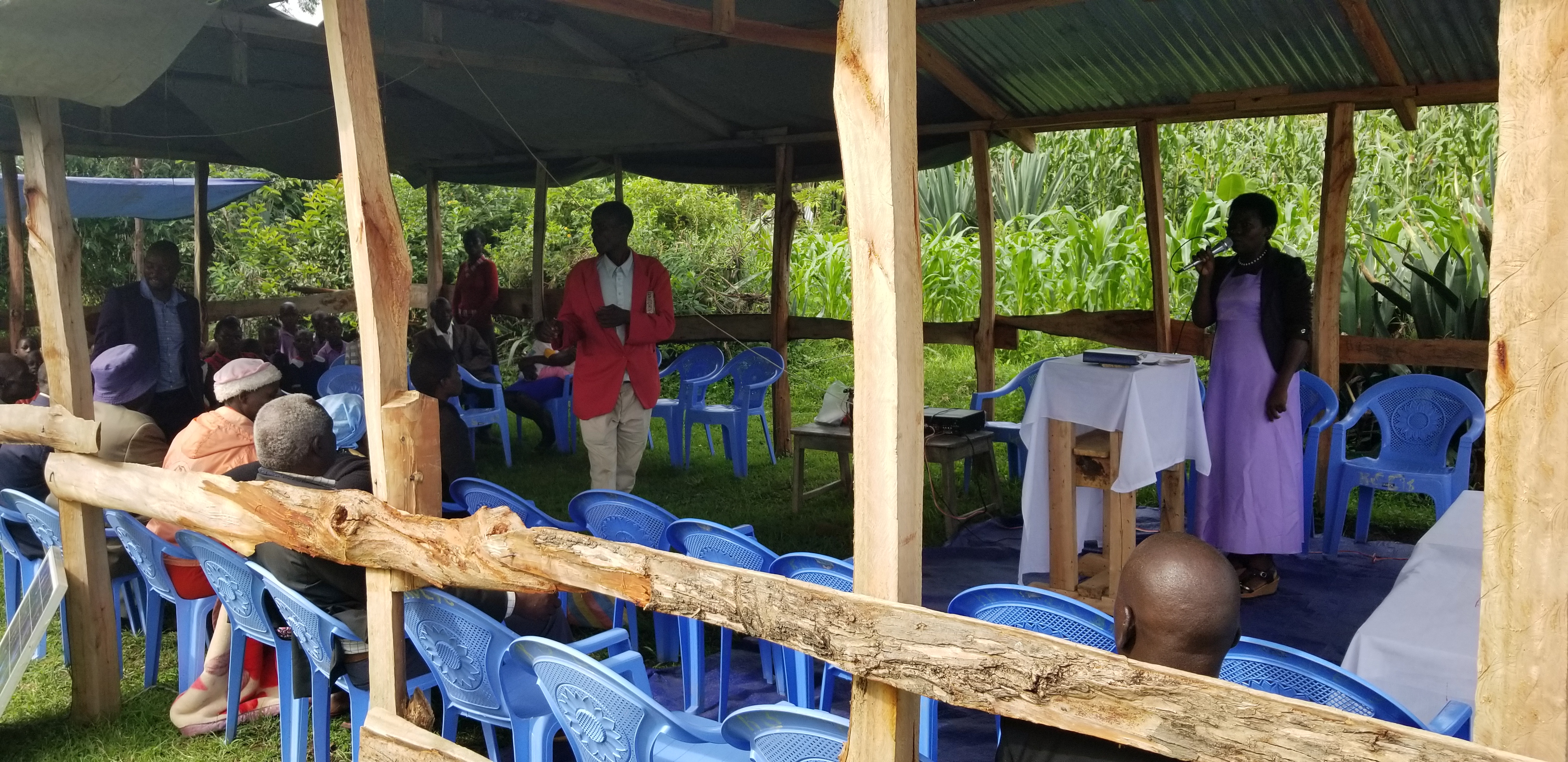
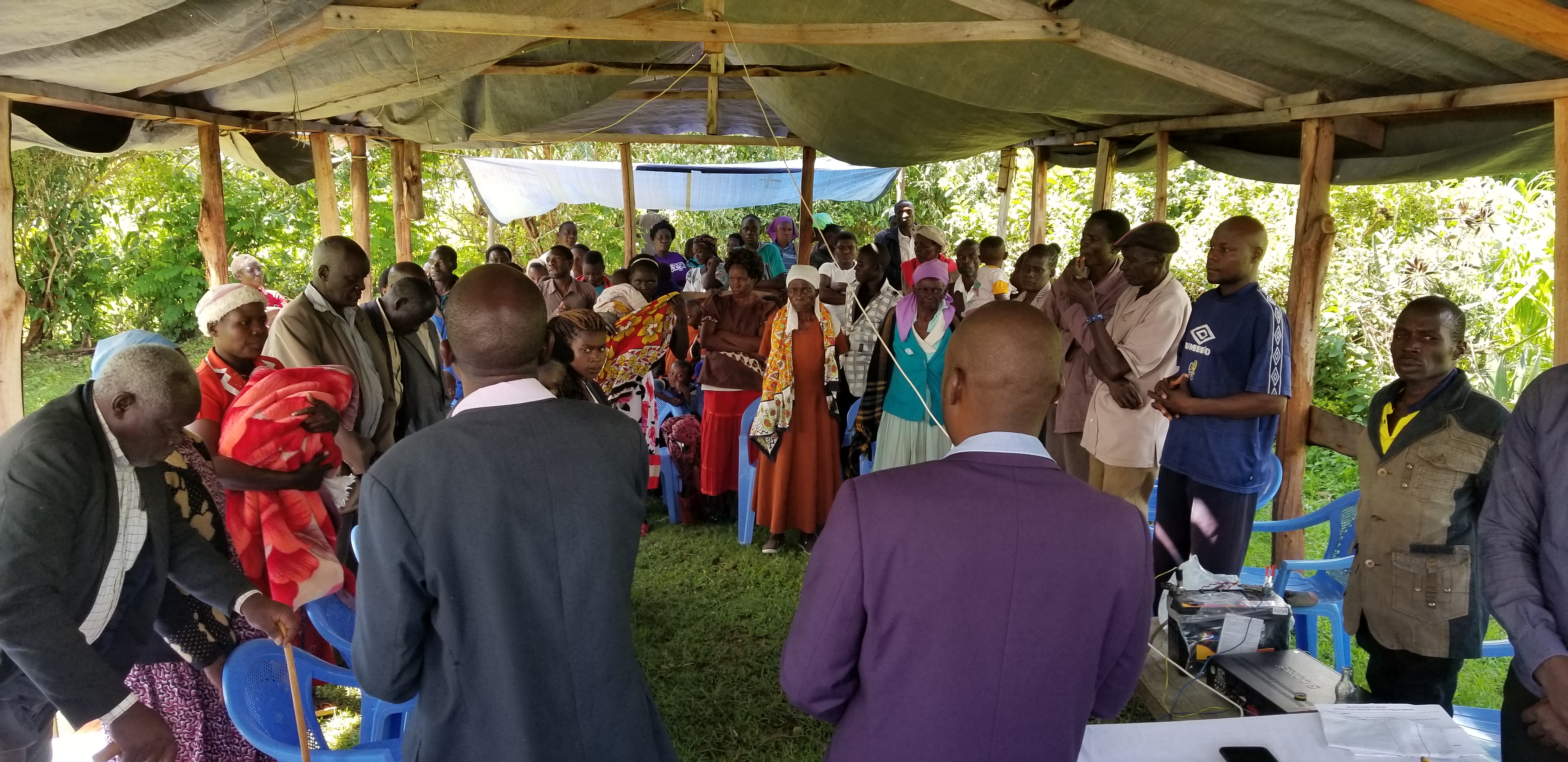
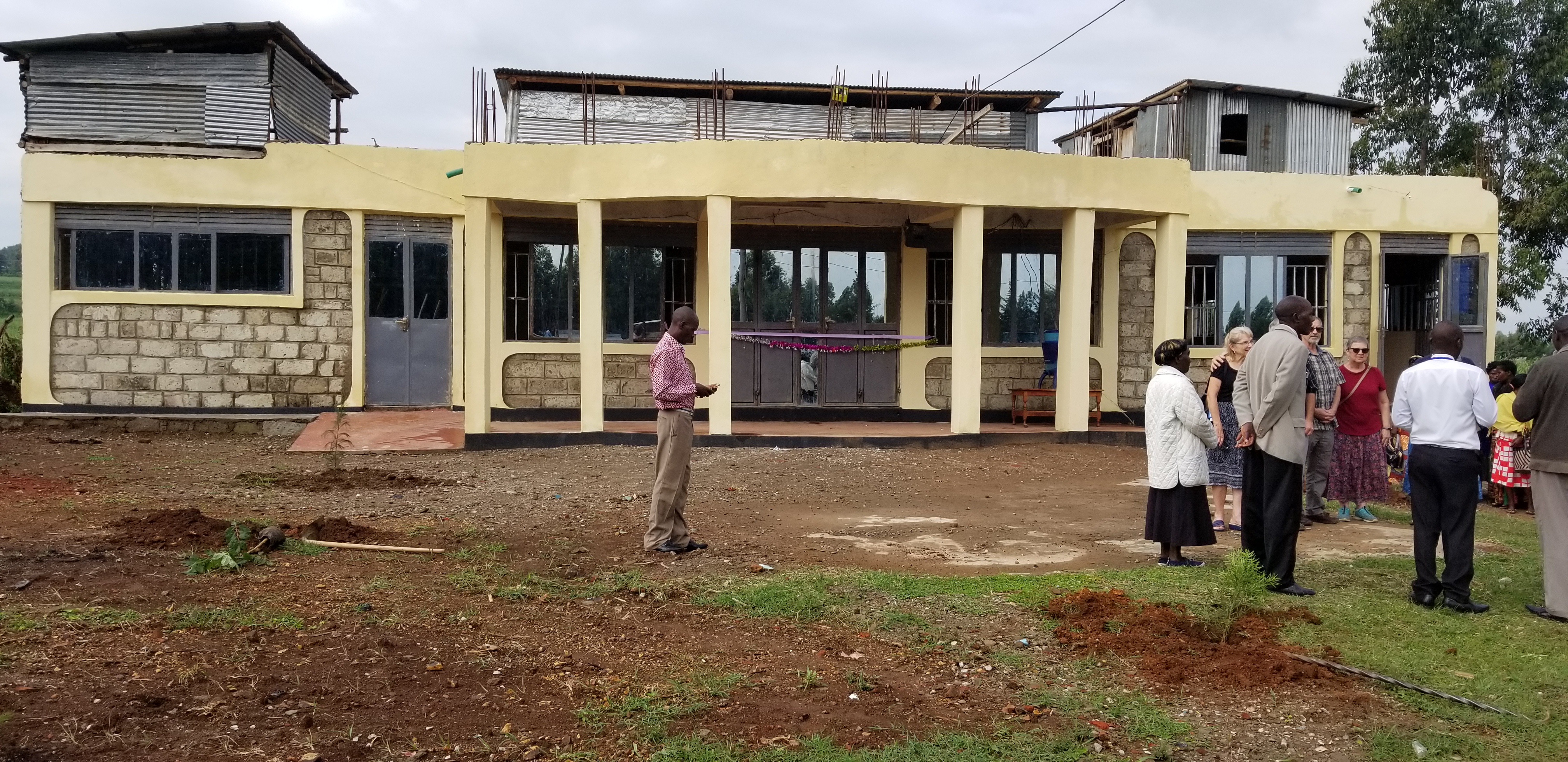


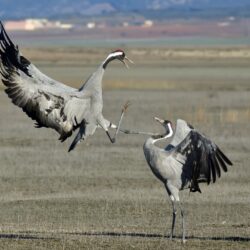

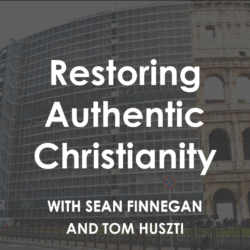
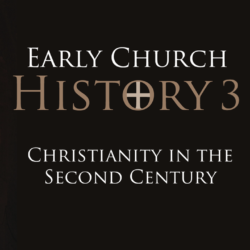
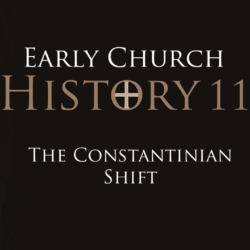
Thanks for update. God’s peace.
Sean, as you shared your experience we can see God’s steadfast (and triumphant) love, blessings and will for you to go against the spiritual battle to stop you from preaching the kingdom! Thank you for sharing this incredible trip! Tom and Gail
Wow, what a great testimony!!!
What a testimony, so touching, when we surrender to the sovereignty of God, I like this part
“Even if the Africans, French, Dutch, and Americans turned me down, rebuking me for even thinking about buying such a big ticket the same day I was due to fly, in the end God used the Muslims to get me to Nairobi”
You reminded me one of Paul’s journey when he encountered a ship wreck amidst crisis
I was so blessed by your message of the kingdom, systematically articulated and simple to understand. And thank you for heeding and obeying the small voice that finally made it possible for you to travel thousands of miles to come to little known remote regions of East Africa.
How I had longed to listen to you more as you teach unfortunately was held back in Eldoret due to unavoidable circumstances. God bless you real good and please come again. Looking forward to seeing you next year.